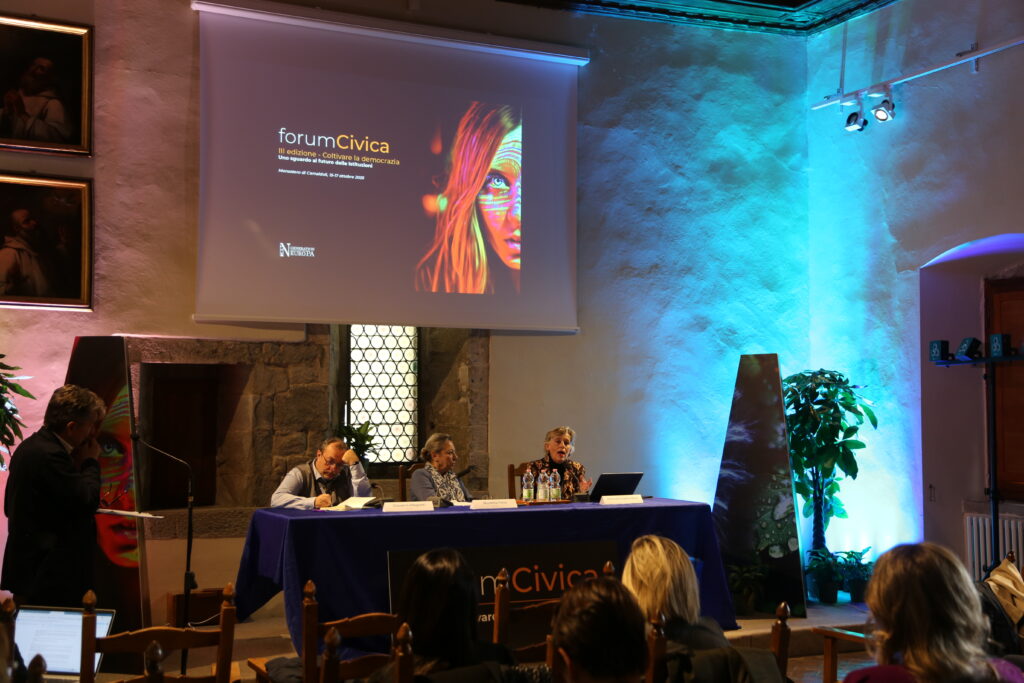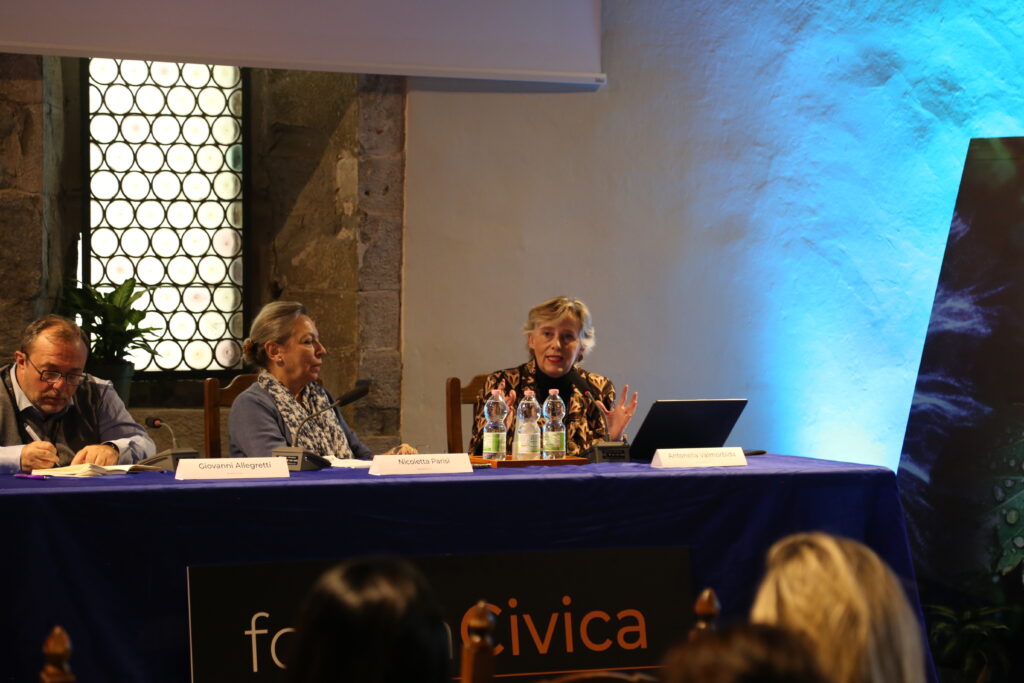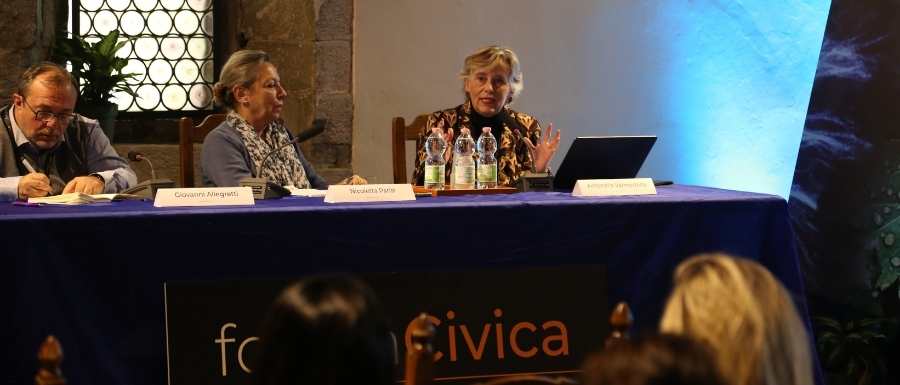From 15 to 17 October, the Monastery of Camaldoli (Tuscany) hosted the third edition of Forum Civica – “Cultivating Democracy. A Look at the Future of Institutions”, bringing together leading scholars, public officials, and civil society representatives to explore how democratic participation can regenerate trust between citizens and institutions.
Forum Civica has become an important space for dialogue on democratic innovation in Italy, bringing together voices from institutions, academia, and civil society. Its third edition focused on the relationship between trust, participation, and the evolving role of local governance in shaping the public good.
This year’s discussions echoed broader European debates on how to rebuild civic confidence and strengthen social cohesion in a time of polarisation and disinformation.
During the roundtable “Institutions and Society: Allies in Building the Common Good,” moderated by the Florence School of Transnational Governance of the European University Institute, Antonella Valmorbida, Secretary General of ALDA, presented the Association’s thirty years of experience in promoting local democracy and participatory governance.
She emphasised that “democracy is much more than voting — it is the daily act of participation and care for the common good.” Through its vast network of 300 members and thousands of partners, ALDA continues to demonstrate how cooperation between local authorities and civil society can strengthen trust, foster innovation, and make communities more resilient.
“Local democracy strengthens democracy itself and it’s the only antidote to the democracy crisis we are experiencing,” stated Valmorbida. “Strong local authorities and organised citizens form the backbone of an inclusive and effective governance model. Where these two actors work together to develop initiatives, social cohesion grows, resources multiply, and people feel part of their community. Nevertheless, it’s key to follow up on those initiatives to transform dialogue into concrete results, ensuring that participation remains meaningful rather than symbolic.
She also recalled the need to empower municipalities, “the first guardians of democracy,” by ensuring they have the skills and resources necessary to act effectively within their territories.
Valmorbida’s remarks resonated with ALDA’s long-standing mission to connect citizens and local authorities through inclusive governance. Drawing from ALDA’s extensive fieldwork — from the Western Balkans to North Africa — she underlined how local participatory mechanisms such as co-design workshops, civic labs, and participatory budgeting can restore citizens’ sense of ownership over democratic institutions.
“A democracy that listens and co-creates is a democracy that endures,” she added.
The roundtable, featuring contributions from Giovanni Allegretti (University of Coimbra) and Nicoletta Parisi (University of Catania, Movimento Europeo Italia), highlighted how cooperation, integrity, and trust remain the cornerstones of a renewed democratic pact between citizens and institutions.
The event was part of Forum Civica 2025, organised by the Next Generation EuroPA Foundation with the scientific support of the Florence School of Transnational Governance and under the patronage of the European Parliament, the Italian Ministry of Public Administration and the Tuscany Region, among others Arezzo.


